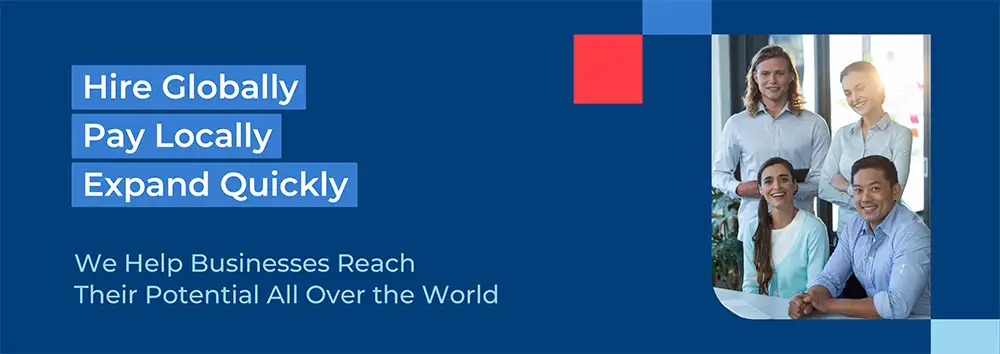Seattle, located in Washington State, is one of the most dynamic business and technology hubs in the United States. Known for being home to global giants like Amazon, Microsoft, and Starbucks, Seattle has built a reputation as a leader in innovation, trade, and sustainability.
The city offers a highly skilled workforce, a strong international presence, and a growing economy that makes it one of the most attractive hiring destinations in 2025.
For companies expanding into the U.S. or scaling their operations, Seattle combines the advantages of a strategic location, world-class universities, and a highly educated workforce.
However, employers must also navigate Washington’s unique labor laws, progressive policies, and competitive job market. This guide provides a comprehensive look at how to hire in Seattle in 2025, from legal requirements to recruitment strategies and compliance.
How to Hire in Seattle Easily in 2025
Employers seeking to hire in Seattle can do so in two primary ways:
- Establishing a U.S. entity in Washington State, registering with local authorities, and taking on full HR, payroll, and compliance responsibilities.
- Partnering with an Employer of Record (EOR), which allows companies to hire employees in Seattle without setting up a local entity. The EOR manages compliance, payroll, and contracts, while the company directs the employee’s work.
Key steps in the hiring process include:
- Registering for federal and Washington State tax obligations.
- Understanding Seattle’s specific labor standards, such as minimum wage and paid leave requirements.
- Creating compliant employment contracts and workplace policies.
- Using Seattle’s recruitment networks, including universities and industry associations, to find qualified talent.
Why Hire in Seattle? The Benefits of Hiring in Seattle
Strategic Location
Seattle’s location on the U.S. West Coast makes it a critical hub for international trade and commerce. Its proximity to Asia, combined with the presence of the Port of Seattle and Seattle-Tacoma International Airport (SEA), makes it one of the most important gateways for imports and exports. For companies with global operations, Seattle provides direct access to both domestic and international markets.
Highly Educated Workforce
Seattle is home to top-tier universities, including the University of Washington (UW), which ranks among the best research institutions in the U.S. These universities supply graduates in technology, healthcare, engineering, and business, ensuring a steady pipeline of talent for employers.
Innovative Ecosystem
Seattle is one of the world’s leading technology hubs, with major investments in cloud computing, artificial intelligence, biotechnology, and aerospace. The city fosters a culture of innovation, supported by a strong venture capital presence and a thriving startup community.
Quality of Life and Talent Attraction
Seattle consistently ranks high in livability, with strong cultural offerings, natural beauty, and a progressive environment. While the cost of living is high, the city’s lifestyle continues to attract highly skilled professionals from across the U.S. and abroad.
Legal Requirements for Hiring Employees in Seattle
Employers hiring in Seattle must comply with both federal employment laws and Washington State-specific regulations, which are among the most progressive in the U.S.
Employment Contracts
Washington State follows the “at-will” employment principle, meaning either the employer or employee may end the relationship at any time, provided the termination does not violate anti-discrimination laws or contracts. Written contracts are not mandatory but are advisable to clarify job roles, compensation, and benefits.
Working Hours and Overtime
The standard workweek in Seattle is 40 hours. Under the Fair Labor Standards Act (FLSA) and Washington law, non-exempt employees must be paid 1.5 times their hourly rate for hours worked beyond 40 in a week. Washington also enforces additional protections around breaks, rest periods, and scheduling.
Probation Periods
Probationary periods are not required by law in Washington but are commonly used by Seattle employers. Typical probation periods last 90 days, allowing both employer and employee to assess fit.
Termination of Employment
Washington is an at-will employment state, but employers must comply with strict anti-discrimination, whistleblower, and retaliation protections. Wrongful termination claims are more common in Seattle than in less-regulated states. Severance pay is not legally required but may be offered as part of competitive hiring practices.
Taxation and Social Security Contributions in Seattle
Employers hiring in Seattle must comply with federal and state-level payroll requirements.
1. Individual Income Tax (IIT)
Washington is one of the few U.S. states with no personal income tax, which makes it highly attractive for employees. Workers only pay federal income tax, which ranges from 10% to 37%, depending on income. Employers are responsible for withholding these federal taxes.
2. Employer Contributions to Social Insurance
Employers must contribute to several federal and state programs:
- Social Security: 6.2% of wages (matched by employees).
- Medicare: 1.45% of wages (matched by employees).
- Federal Unemployment Tax (FUTA): Typically 0.6% of the first $7,000 in wages.
- Washington State Unemployment Insurance (SUI): Employers contribute at rates determined by their industry and claims history.
- Paid Family and Medical Leave (PFML): Washington requires joint contributions from employers and employees to fund statewide family leave benefits.
3. Contribution Bases
Social Security contributions are capped at the IRS-set wage base (projected at $168,600 in 2025). Medicare contributions have no cap, though high earners are subject to an additional 0.9% surtax.
Work Permits and Other Requirements for Hiring Foreign Workers in Seattle
Seattle attracts a significant number of foreign professionals, particularly in technology, healthcare, and aerospace. Employers hiring non-U.S. citizens must follow immigration requirements.
- Visa Sponsorship: Common visas include H-1B (specialty occupations), L-1 (intra-company transfers), and O-1 (extraordinary ability). Sponsorship requires employers to show the role cannot be filled by local workers.
- Labor Condition Application (LCA): Employers must file LCAs with the U.S. Department of Labor for certain visas, confirming compliance with wage and workplace standards.
- E-Verify: Many Seattle employers use E-Verify to confirm the eligibility of new hires.
- Health and Background Checks: Certain visa categories require employees to complete health screenings and provide criminal background verification.
Current Trends and Top Recruitment Strategies in Seattle
Seattle’s job market is highly competitive, particularly for technology and healthcare professionals. Companies must be strategic in their recruitment efforts.
- University Partnerships: Collaborating with the University of Washington and Seattle University provides access to a steady stream of graduates in STEM and business fields.
- Tech and Healthcare Recruitment: Employers must emphasize innovation, sustainability, and long-term career development to attract professionals in Seattle’s most competitive industries.
- Diversity and Inclusion Focus: Seattle has a diverse workforce, and inclusive hiring practices are both expected and valued by employees.
- Hybrid and Remote Work Options: Many Seattle professionals expect flexibility, and companies that offer hybrid or remote work are more successful in recruitment.
- Local Networking: Seattle has a vibrant professional community, with industry meetups, tech conferences, and trade associations providing excellent recruitment opportunities.
Hiring Skilled Workers vs. Entry-Level Talent in Seattle
Hiring Skilled Workers
Seattle’s skilled professionals in technology, healthcare, and aerospace expect robust compensation packages, comprehensive benefits, and meaningful career opportunities.
Employers must highlight professional development, innovation, and company culture to compete with major corporations based in the region.
Hiring Entry-Level Talent
Seattle’s universities provide a large pool of entry-level candidates ready to enter the workforce. To attract them, companies should focus on mentorship, structured training programs, and opportunities for career advancement.
Offering internships and apprenticeships also helps establish early connections with young professionals.
Competitive Benefits in Seattle
While salaries are a key factor in attracting talent, benefits often make the difference in Seattle’s competitive hiring environment. Common offerings include:
- Comprehensive health, dental, and vision insurance
- 401(k) retirement savings plans with employer contributions
- Paid vacation, sick leave, and family leave (aligned with Washington PFML)
- Wellness programs, including gym memberships and mental health support
- Tuition reimbursement and professional training opportunities
- Flexible work arrangements (hybrid or remote)
Hiring Solutions for Foreign Companies in Seattle
For international businesses, hiring in Seattle can be simplified through several models:
Independent Contractors: Hiring contractors allows flexibility but requires careful classification under U.S. and Washington laws to avoid penalties for misclassification.
Establishing a U.S. Entity: Opening a local subsidiary provides full control but requires significant investment, time, and compliance with state incorporation and tax rules.
Employer of Record (EOR): The fastest and most cost-effective solution. An EOR handles all compliance, payroll, and HR responsibilities while the company manages the employee’s day-to-day activities. This enables foreign companies to hire in Seattle without establishing a local entity.
Trust INS Global to Hire in Seattle Today
Seattle offers one of the most promising labor markets in the U.S. for 2025. With its strategic location, strong education system, and innovative economy, the city provides opportunities across industries ranging from technology and aerospace to healthcare and trade.
At the same time, Seattle’s competitive job market and complex labor laws can make hiring challenging, particularly for international businesses. That’s where INS Global comes in.
Our Employer of Record (EOR) services make hiring in Seattle seamless and compliant, allowing companies to focus on growth while we manage payroll, HR, and legal requirements.



SHARE